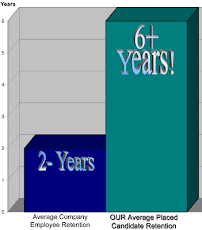
Bosses who think they're the next Jack Welch might want to reassess their talent level.
A new survey of 1,100 front-line managers suggests many are over-estimating their skills, with surprisingly little self-doubt. Seventy-two percent said they never questioned their ability to lead others in their first year as a manager.
Managers were also unlikely to rate themselves as weak in a number of leadership attributes, such as planning, communication and adaptability, according to the study by consulting firm Development Dimensions International Inc.
Front-line managers believe that their biggest strengths are in setting work standards and planning and organizing, according to the survey.
The skills they said they most needed to work on were delegating, coaching and gaining commitment—but no more than 15% of managers pointed to any one of those as a "development area."
"It doesn't matter what industry you're in. People have blind spots about where they're weak," says Scott Erker, a senior vice president at DDI, which conducted the survey in September.
The company separately compared some managers' self-assessments to performance in a business simulation that attempted to mimic real-world challenges the leaders might face. They found that managers consistently over-rated their delegating and coaching abilities, Mr. Erker says.
On the other hand, the company didn't find any consistent pattern of "hidden strengths," or areas in which managers underestimated their skills, he says.
One problem: When workers become managers, they're often surrounded by employees who flatter them as a way of ingratiating themselves to their boss, said Stanford business professor Jeffrey Pfeffer, author of the book "Power."
"People also don't understand the feedback they get. They either mishear or choose not to hear criticism," he said.
Still, at least some front-line managers harbor some doubts. About 26% of front-line managers said that they regretted being promoted at least sometimes during their first year, according to the DDI study. Fifteen percent said that their interest in being a manager decreased since being promoted. - By JOE LIGHT on the Wall Street Journal














1 comment:
I read "The Headhunters Edge" when I started recruiting, and one point from that book has stuck with me: good managers should know their weaknesses. You have been recruiting a long time, and I'm sure you've talked with many good and bad managers. Do you find the good managers know their weaknesses or limitations?
Post a Comment